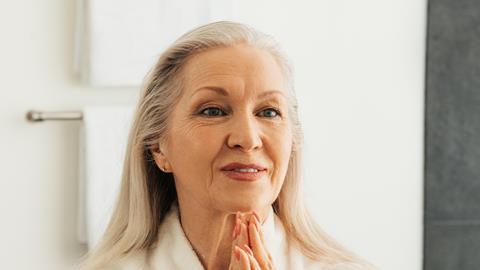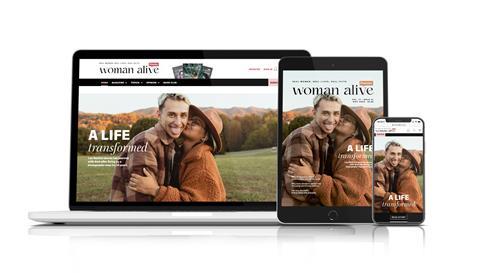Jo Ibbott says the greatest gift you can give this Christmas is some self-care
I love Christmas, I love celebrating, I love the traditions we have as a family and I love how it brings us all together. I also love receiving gifts. I can’t deny it; there’s a buzz of expectation and excitement seeing the parcel wrapped under the tree, even if I know what’s in it. The anticipation, that someone has taken the time, spent their hard-earned money on me and finds joy in seeing me open it means something.
I love giving too, but if I don’t receive gifts, I must admit I feel a bit hard done by! I admire people who genuinely only get a kick out of giving and don’t need anything in return, I really do.
Noticing our needs, how we’re wired and what makes us happy may feel a bit self-absorbed, but is a crucial step towards self-understanding.
Growing up in a Christian home and the daughter of a pastor, I grew up with a strong Christian ethic of putting others first. The greatest commandments are clear: “‘Love the Lord your God with all your heart and with all your soul and with all your mind.’ This is the first and greatest commandment. And the second is like it: ‘Love your neighbour as yourself’” (Matthew 22:37-39). As I reflect, we mostly focused on the ‘Love God and love others’ part and not so much on the ‘as well as you love yourself’ part.
What menopause and mid-life have taught me
Over recent years, I’ve realised I can’t ignore myself or my needs anymore. As a type two on the Enneagram, the Helper, I’m hard-wired to help others. This means I don’t always know what I need or how I’m feeling. However, mid-life and menopause have taught me the importance of paying more attention.
What do I mean by that? As women, we spend much of our lives looking after others. We are the curators of our families, our careers, our communities, our churches. We hold things together, we make the plates spin, we pick up the pieces, glue them back together and go again when they’ve smashed onto the floor.
As we transition through perimenopause and menopause, we may face a variety of new challenges, including changes in mental health and energy levels, empty nest syndrome, caring for ageing parents, coping with loss and grief and relationship difficulties.
Mid-life and menopause have taught me the importance of paying more attention
When I began perimenopause in my mid-40s, I started experiencing low mood, anxiety, intense irritability and insomnia. My emotions flat-lined and I lost my joy. These symptoms had an impact on my interactions with others, as well as how I felt about myself. They made me feel miserable and lost.
To cope with these symptoms and invest in my future health and wellbeing while still being able to love, I came to realise that self-care is essential. This meant giving myself permission to love and look after myself – my heart, mind and soul – which is crucial for continuing to love God and others.
My top self-care tips
Here are some of the things I have learned to do, which I would encourage you to try for yourself too.
Exercise Having never consistently exercised, I began running and strength training. Strengthening and moving our bodies is important if we are to age well and exercise is key for our mental health too.
Solitude I’d always assumed I didn’t like my own company (largely because I’d never really experienced it as I was always so busy!). However, since realising the importance of having time to myself, I now create opportunities to do so.
Self-awareness I ask myself: “What do I need?” more regularly and if necessary articulate that to those around me. This is important at both home and work.
Manage stress Understanding how stress exacerbates our symptoms in perimenopause is helpful. I have learned to manage stress by creating margin in my life. Do the same for yourself through exercise, getting out in nature, breathing well, reading the Bible, connecting deeply with others and praying mindfully. Do things that will release the happy hormones for you!
Prayer If it’s difficult to carve out dedicated time for prayer or to focus when you do, ditch the guilt! I take opportunities throughout the day in whatever I’m doing to chat with God, He’s with each of us anyway, so you can simply bring him into the conversation.
Nutrition Look at your nutrition and understand how things need to change to support your mental wellbeing, reduce inflammation, improve bone health, energy levels, weight and to reduce those sugar highs and lows.
By loving yourself, you’ll find strength and resilience to navigate this phase of life
Sleep I have learned to take sleep seriously! Create the right environment for good sleep and have strategies for those times when it’s not so good.
Advocate Do this for yourself; get informed, be assertive and seek the right medical help to help you manage the decline in hormone levels.
Fun Have fun by doing fun things! Laugh. Spend time with those you love and who bring joy into your life.
Loving yourself well
Menopause is a significant moment, a time of change and transformation. The biological changes that are taking place offer us the opportunity to reassess our lives, to move forward with greater self-awareness and a renewed sense of purpose. But we need to create the space for that to happen.
What menopause and mid-life have given me is the wisdom to be intentional about looking after myself. If I don’t, it’s like Christmas with no gifts all over again, as resentment creeps in and I end up in an unhealthy place. If I do practise self-care, I love better, with a renewed anticipation and expectation of God’s love for me and what that could mean.
This Christmas, as you transition through perimenopause, the greatest gift you can give yourself is self-care. By loving yourself, you’ll find strength and resilience to navigate this phase of life and new ways to love God and others as you move into the next phase.
Set the intention. Start small. Repeat.
Happy Christmas!

































No comments yet